Cloud computing in the current era of the digital world is fast becoming economical, flexible, and scalable in business. Cloud infrastructure has been identified to be supporting infrastructures to many enterprises, which store sensitive data, applications and sensitive business processes.
Nevertheless, the wider the cloud services are used, the higher the chances of cyber attacks become, which means that cloud security has become one of the primary concerns of businesses off-planet.
This is where the role of Artificial Intelligence (AI) appears. AI is changing how companies ensure their cloud infrastructure is secure and it is delivering faster, more efficient and more intelligent solutions to address cyber threats.
What is Cloud Infrastructure?
Cloud infrastructure is the software and hardware used in order to make cloud computing accessible. It comprises servers, storage, networking devices, and virtualization technology that facilitate the said services being offered on the cloud. The cloud infrastructure can be of three primary categories:
-
Public Cloud: Managed and maintained by the third party cloud service providers (e.g. AWS, Microsoft Azure, Google cloud).
-
Private Cloud: The Cloud uses a specific infrastructure that is controlled by one organization, whether in-house or in an out-sourced manner.
-
Hybrid Cloud: This is the mixture of public clouds with the privates in order to avail more flexibility and also the optimization of the prevailing infrastructure.
he scalability, flexibility and accessibility of data and applications anywhere ensure a competitive edge to cloud infrastructure and thus it can attract organizations of any size.
The Growing Need for Cloud Security
With the business planning to make entry in the cloud and the data transfer in the cloud, security is something which is more important. Although this cloud has numerous advantages, it equally has a number of security issues:
-
Data Breaches: With the business planning to make entry in the cloud and the data transfer in the cloud, security is something which is more important. Although this cloud has numerous advantages, it equally has a number of security issues:
-
DDoS Attacks: DDoS attacks have a potential to cripple cloud infrastructure with downtimes that can lead to lost service.
-
Insider Threats: Staff members intending to do harm or already having hijacked credentials can use cloud-based computers to locate sensitive secrets.
-
Lack of Visibility: Visibility is a major issue in a cloud environment because we cannot easily monitor and control all the data and activities hence creating room to act on them.
How AI Enhances Cloud Infrastructure Security
With the help of AI, cloud security is being re-engineered in terms of more precise and efficient threat detection and hasty response time, as well as the possible prevention of forthcoming attacks. To get a closer look at the role of AI in ensuring cloud security, let us find out more about it.
1. AI-Powered Threat Detection and Prevention
Among the most momentous uses of AI in cloud security is that it can detect and prevent threats real-time. Subsets of AI, also known as machine learning algorithms, have the ability to work with massive quantities of data found in the cloud to create patterns that are likely to represent a possible security breach.
As an example, AI can track the activity of the users and traffic, on the system and within the network, to detect anomalies that do not fit the normality. Once such anomalies are identified, AI may create alarms automatically or cause automatic actions, like denying an IP address or separating corrupted systems.
Classic security systems are also unlikely to identify some threats that have not yet been discovered. AI, however, can identify them. It is especially helpful in detecting the zero-day vulnerability or new form of malware.
2. AI for Automating Cloud Security Operations
Besides threats detection, AI has the ability to automate security activities that normally would involve human intervention. An example here is that AI can perform patches, upgrade security settings and scan threats without human intervention.
Automation of routine security services can help free up the security teams of the business to concentrate more on the bigger challenges thus creating less potential of human errors. Moreover, automated processes that rely on AI can react to the security incidents immediately, so there is no chance that the attackers will use the vulnerability exacerbately.
3. AI for Intrusion Detection Systems (IDS)
IDS are networks that are based on the monitoring of the network traffic to detect any violations occurrence or unwanted practices. Artificial intelligence-based IDs can process large volumes of data in cloud environments and easily forecast any intrusion alarm with high accuracy and a shorter response time compared to the conventional IDS.
IDS on AI also has the ability to adjust to the rising threats. As another example, machine learning algorithms can be trained using historical attack data so that new, emerging patterns of attacks will be recognized enabling the system to find new and previously unknown ways of intrusion.
4. AI in Access Management and Authentication
Cloud security has important access control. Using AI in enhancing authentication systems is feasible, especially with regard to surveillance of user habits and deployment of adaptive authentication procedures. In contrast to simple passwords or two-factor authentication, AI-based mechanisms enable systems to evaluate the risk of any specific access request taking into consideration the current location, time of access, and the users behavior.
As an example, the AI may detect some unusual pattern of login time or location and ask for extra verification prior to the permission of access. This aids in the ability to secure sensitive information in the cloud and applications to be accessed by authorized persons only.
AI-Driven Security Solutions for Cloud Infrastructure
| AI-Driven Solution | Description |
|---|---|
| AI-Powered Firewalls | Use machine learning to analyze traffic patterns and block suspicious IP addresses or malicious traffic in real-time. |
| Cloud Access Security Brokers (CASBs) | Leverage AI to monitor and control user activity across cloud services, ensuring compliance and detecting anomalous behavior. |
| AI-Based Encryption | Automatically encrypts sensitive data stored in the cloud and manages encryption keys using AI algorithms. |
| Behavioral Analytics | Uses AI to learn normal user behavior and detect deviations that may indicate a potential threat. |
| Automated Vulnerability Scanning | AI-powered tools automatically scan cloud infrastructure for vulnerabilities and patch them without human intervention. |
These AI-driven tools provide businesses with more efficient and proactive methods for securing their cloud infrastructure, enabling them to stay ahead of emerging threats.
Benefits of AI in Securing Cloud Infrastructure
Implementation of AI in the security of clouds introduces multiple important advantages to companies:
1. Real-Time Threat Detection
AI also makes it possible to monitor cloud environments constantly and businesses may notice the threat and respond to it as it occurs. This real-time response assists in averting data loss, system compromise and downtimes caused by cyber-attacks.
2. Proactive Defense
Instead of businesses responding to the threats once they happen, AI enables business entities to predict and see the risks before it happens. AI can prevent possible attacks in advance by identifying openings and unusual patterns of behaviour.
3. Improved Accuracy
The big data that can be processed through AI algorithms is discussed in terms of the impossibility to find the pattern on the level that can be produced by AI. This will produce less false positives and improved security stance.
4. Cost Efficiency
AI can automate other security chores, thus eliminating the need to employ massive human labor, which enables businesses to cut-down on their operation costs. Also, the problems with pricey data breaches can be prevented through AI-based solutions as they detect and fix security problems before they progress too far.
5. Scalability
Security complexity increases as more infrastructure becomes a cloud. Artificial intelligence solutions for security can accommodate increasing demands of a business, accommodating greater data volumes and more users without slowing them down.
Challenges of Implementing AI in Cloud Security
On the one hand, AI provides many advantages, but on the other hand, it may be subject to certain difficulties in connection with the introduction of AI in cloud security:
1. Data Privacy and Compliance
To apply AI to cloud security, one will need to have access to big amounts of data, which can contain some business-sensitive information. The organizations have to take care that AI-enabled security solutions comply with data privacy regulations like GDPR or HIPAA on industries that have high compliance standards.
2. Complexity and Integration
The process of integrating AI into the existing cloud infrastructure may be problematic and particularly complicated to implement in case of businesses lacking the AI specialists in-house. It can also demand huge investment in training and development so as to be implemented.
3. Dependence on Data Quality
The quality and quantity of data that AI systems are trained on is essential to them. Given an incomplete or biased data, AI model can give wrong results, resulting in inaccurate identification of threats or false positives.
4. Risk of False Positives
Although using AI would considerably decrease false positives, there is no such thing as a perfect system. There is still a risk of legitimate operation being reported as malicious by the AI models and additional impact on the business is created.
Real-World Applications of AI in Cloud Security
A number of businesses have already adopted AI-based solutions in order to protect their cloud infrastructure. So, what do we see on the ground as it relates to AI to secure cloud data and guard against any cyberattacks?
1. AI in Protecting Against Distributed Denial-of-Service (DDoS) Attacks
One of the most frequent forms of cyber-attacks on cloud infrastructures is the Distributed Denial-of-Service (abbreviated as DDoS). In DDoS attacks, a cloud service is targeted with an excessive load and crashes followed by termination of services. Such real-time attacks many times escape the traditional security systems.
Example: One of the key e-commerce websites employs a DDoS protection system powered by AI to track activity in the network and alert of possible instances of abnormal traffic that could signal an incoming DDoS attack. The AI algorithm will continually study the traffic patterns and analyze them with the available historical data to detect they may be potential threats. At the detection of a DDoS assault, the AI system automatically embarks on counter measures, like redirection or blockage of malicious IPs respectively defending the platform against these services outage.
2. AI for Insider Threat Detection
Malicious and unintentional insider threats prove to be very dangerous to the security of the cloud. AI is also instrumental in identifying these threats since it is constantly tracking the behavior of the employees and identifying any anomalies in their normal patterns.
Example: Such a financial institution can use behavioral analytics powered by AI to track the activities used by the users within its cloud infrastructure. The AI will know what is expected of a particular employee including what time they can log-in, how they access information, and what kinds of data they are normally working with. In case an employee logs in to confidential information or acts in an unusual way, the AI system sends out an alarm and causes an automatic security inspection.
3. AI in Cloud Access Management
AI can also be useful in the improvement of cloud access management since it enables the evaluation of the risk posed by each access request made by the user in real-time through the application of machine learning. This makes it possible to have adaptive authentication such that sensitive cloud resources are only accessible by authorized people.
Example: A tech corporation in the world applies AI to perform adaptive authentication policies. The AI-based system evaluates whether the user should be able to access critical applications based on several factors, including their use and location, device security, and the time the user logs in. In case the system notices something unusual (e.g. an employee logging in at a weird location), it sends an algorithmic request of further verifying (e.g. using a multi-factor authentication), that the request is valid.
4. AI in Data Encryption and Privacy
Encryption of data proves significant to secure delicate data in the cloud. Encryption systems driven by AI can improve the security of data through automation of keys and making the data encrypted when in transit and rest.
Example: A medical facility installs an AI-based encryption system to protect the patient data that are stored on the cloud. Users can only access the new data after it has been automatically encrypted by the AI system as it is uploaded on the cloud. Encryption keys will also be rotated on a periodic basis, so that the data could be secured with time.
Summary
Because of AI, businesses are changing how they can protect their cloud infrastructure to make it smarter and automated in terms of detecting threats and controlling access to data in terms of encryption and others. Using the AI-assisted security solutions, the companies will be able to take a proactive approach in their efforts and secure their cloud systems, minimize the danger of a cyber-attack, and comply with the data privacy requirements.

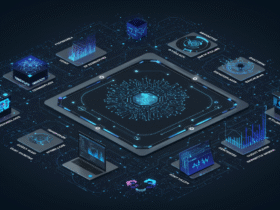


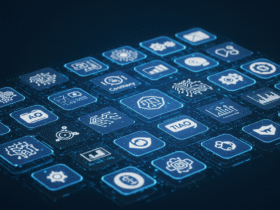




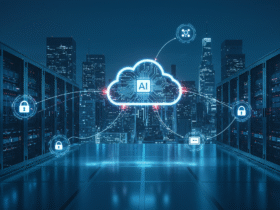


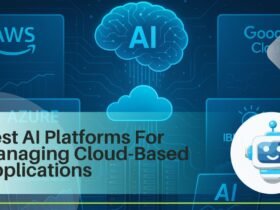




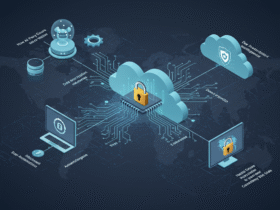
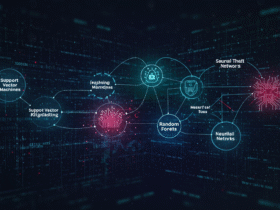



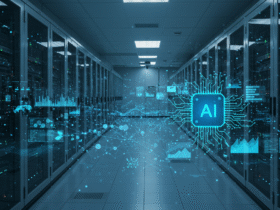
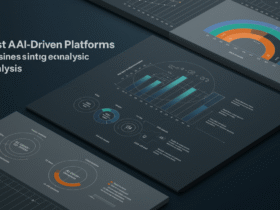


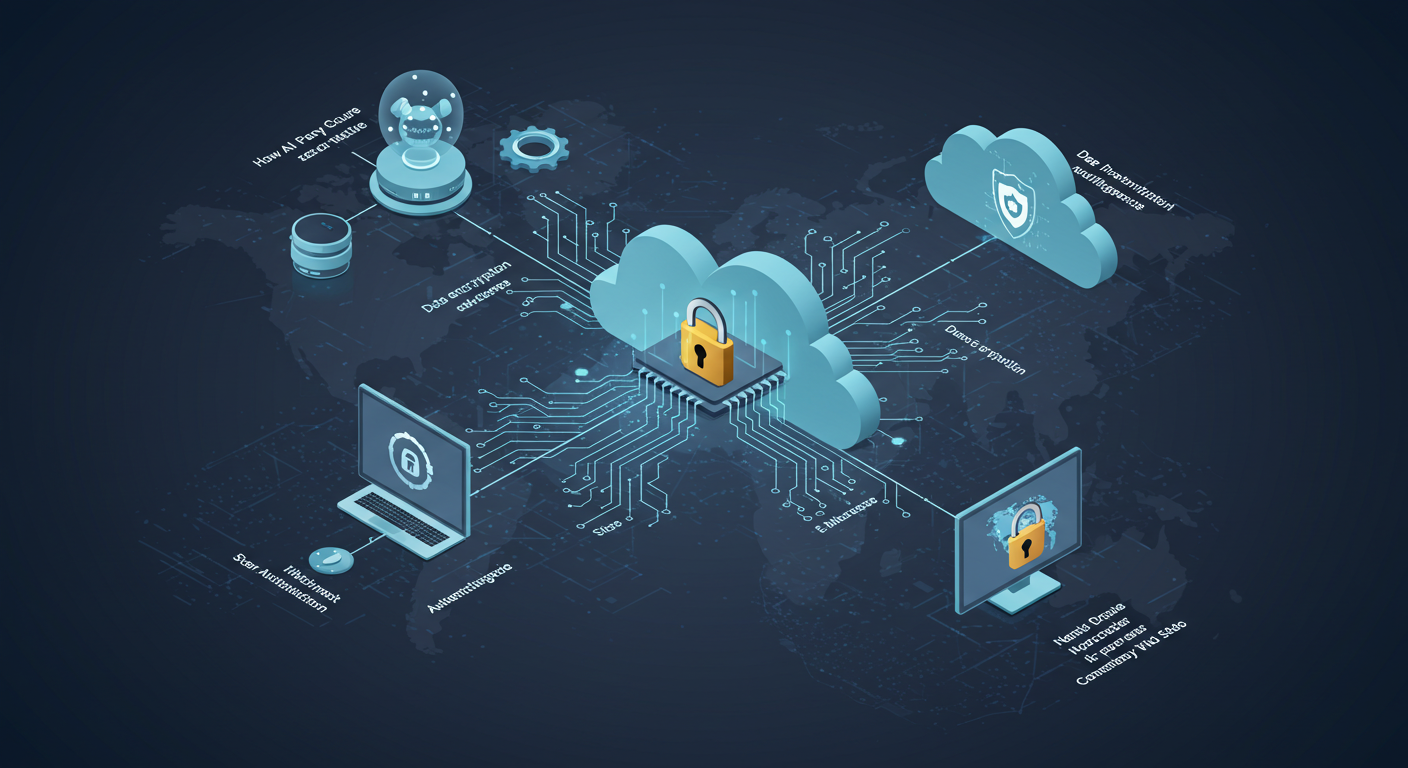


Leave a Reply